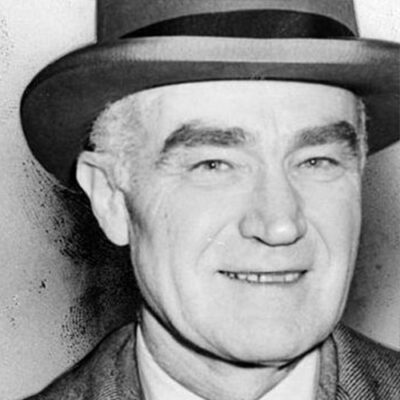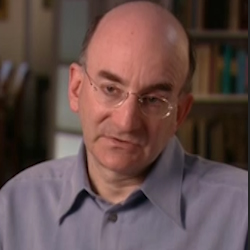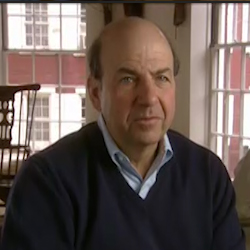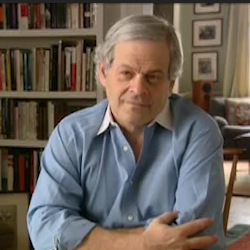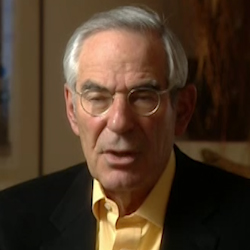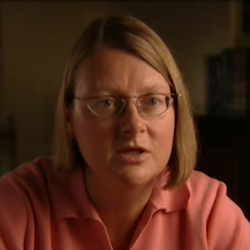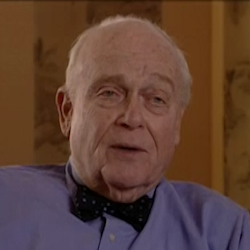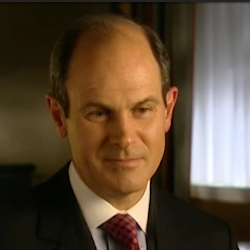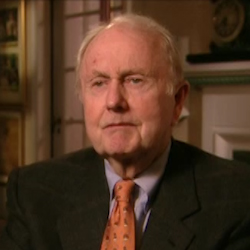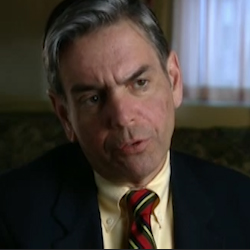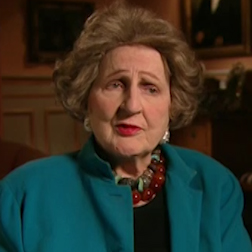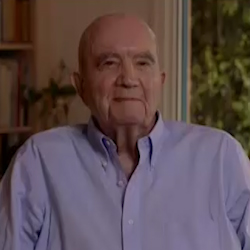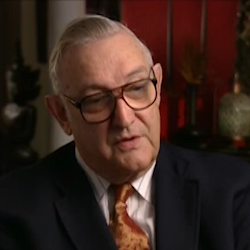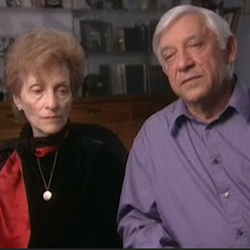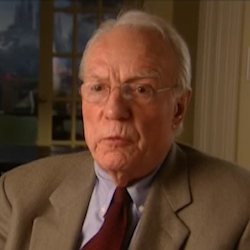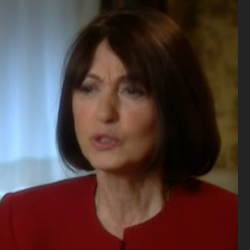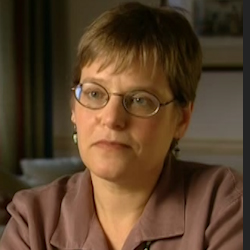Interviewer: He’s done this before.
Gore Vidal: I’ve read so much about it.
Interviewer: OK, great. Well, why don’t we just start off with talking about your relationship.
Gore Vidal: Well, Harry Lewis was. Always present in my life, at least since I was 10 years old. And that was the year that was 1935. And my mother married somebody called Hugh Dudley, Orkan Cross of New York and Newport and Washington, D.C.. And Hughly, as we call them, had been roommate at Yale. To Harry Luce here, it was very, very rich. His mother was a Jenning’s of Standard Oil.
Interviewer: OK. Sorry about that. Your relationship with Harry?
Gore Vidal: Well, it seems to me that I had known Harry, Uncle Harry. We were obliged to call him. Not with any great joy. I must say. In 1935, I was 10 years old, which was the greatest event of the year for me. So that is that years from my mother. Nina Gore, she married Hooda, often cross of Newport and Washington, D.C.. And he had been at Yale with Harry. I think his roommate. It was immensely rich. His mother was a Jenning’s of Standard Oil, and I think Harry always had kind of a dousing rod. In early days for great money, as he had none. Missionaries, son, you know what they’re like. And nose pressed against the glass. Then later, it was just the same as people president. He was too big for money. He was. With with Hitler and Roosevelt and all the great movers and shakers. Anyway, Houdin lets you Dudly broken down. Hillary took Harry. His roommate to Europe on his first trip to Europe for that. As you know, Harry was has been out in China. Missionaries in China was always his obsession, but he first got his first look at Europe with his roommate, Hillary.
Speaker Two years later, it was a rather droll man. And sort of stammered and he seemed much dollar that he was he was rather sharp. He said it’s so interesting that wherever we went in Europe, no matter what country, there was a terrible train ride across Bulgaria, which they ended up with with lies.
Speaker And this is one of his favorite stories. It would go on about 40 minutes. I used to clock these stories, some of them I liked.
Speaker I like the life story and Uncle Harry. So wherever we went.
Speaker He made enemies for the United States. He said I would watch him. And he was couldn’t be more pleasant. He was your friend and so on. But when he would start in and I’ve seen it many times. Well, now tell me what you’re doing at school.
Speaker I hear that you’re failing. You’re failing at Exeter. How could you do that? Always inquisitorial. Always asking questions.
Speaker Uh. We’re not for him at all.
Speaker I was quite disliked him, but he fascinated me.
Speaker And he was a I was brought up in Washington and from 10 to 17, I lived in Mr. Hawk because as I was there.
Speaker And up at Newport, Rhode Island, and my mother got us all out of the often closed world. And I was never to be out of Harry Luce’s world since as magazines. Wrote about me at length. Write about me at length for the next 50 years. So that was the beginning. The most vivid impression I have of him. My mother discovered that she was unhappy. Is Mr. Orkan class. And the Standard Oil millions.
Speaker So she just left.
Speaker Now, he was living at Mary Wood in Virginia those days she moved into Georgetown. I was away at school failing at Exeter, as Harry would put it. And Seanna to house an ostrich is one of the first of those ladies who bought the old red brick houses of Georgetown and fix them up gentrified and.
Speaker And I remember coming home unexpected and. She had the result of a study on the right as you went in, and then a very pretty sitting room and I heard voices in the sitting room.
Speaker I am not by nature an eavesdropper, because I know perfectly well how fatal that is what you might hear about yourselves. I don’t never eavesdrop or read Time magazine about yourself either. I heard voices and I recognized areas and I ran because I recognized my mother’s. He had once he learned that she had moved out of Mary, what is it was called in appropriately and Virginia left Mr. Claude. He rushed down to Washington to ask her for her hand in marriage.
Speaker This must have been nineteen forty.
Speaker And I just was riveting. I was not about to not listen to this conversation, so I sat in the next room and just listened to the. And I was a devotee of the MGM movies of the period, particularly Philip Barry, The Philadelphia Story, because I was just like, well, folks. And he actually said he stumbled around a maybe it was not a graceful suitor at all. But he was an insistent one.
Speaker And he was saying all the reasons why they should get married. And I think she’s already planned to marry somebody else. So she was being very gentle about it, trying to get rid of them. And then he said the phrase that has reverberated in my head for half a century. My wife, Claire. Does not understand to me.
Speaker I thought, well, if you think my mother will understand you, you’ve got another thing coming. I mean, she she was only interested in understanding herself. So I felt, well, he’s easy. He’s going in the wrong direction here. But then I could see that it was going to go nowhere.
Speaker A footnote.
Speaker To the relationship with Orkan cause when it came time to start Time magazine. Hillary land him, I think fourteen thousand dollars and I did original courses, what, sixty, something like that. Which is a big chunk in those days, depression time. And it was duly grateful. As soon as the magazine was in the black, which was pretty fast, it was a great success. He paid back Hillary without any interests or any suggestion that he might have shares.
Speaker Most ungenerous man. And even Hooty, who is rather use being a stockbroker.
Speaker He knew about human infamy and selfishness and he was rather startled not knowing that Harry had also come to try and get his ex wife immediately and she’d left him.
Speaker What was what was your. First impression of his magazines before you came to know him more intimately.
Speaker I mean, when you were younger, did you read Time magazine or life when it started?
Speaker No, we asked. You remember, I’m a Washington boy. My father was on the cover of TIME in 1933 when he became director of air commerce for Franklin Roosevelt. My father had been a very glamorous, all-American football player at West Point, one of the early pilots founded three airlines and then for four years was in a post that no longer exists. But it was like minister of aviation. And took a lot of flak from the press, not too much from time. I think Harry rather liked him. But I mean, I remember when my father was on the cover of Time in the 30s, I guess through the 40s up until about the 50s. That was about the highest thing that you could be in the United States. That meant you were there.
Speaker You arrived, the famous Time magazine curse. They hadn’t worked out yet that if you got on the cover of TIME, you wouldn’t work again for eight years if you’re in the movie business. You know, they always pick the wrong person and.
Speaker And so I did read Time and being a Washington boy, I knew many of the people they were writing about because they wrote a lot about politics. And I published my first book when I was 19 or 20, just out of the Army. I had spent three years. And soon there I was being reviewed and time. I remember the first edition of Life. It was very exciting, my father brought it home. His office was in the Department of Commerce. And we’ve never seen anything like it. There was great Babylonian temples on the cover. I can remember as if it were yesterday that I last saw them. And it was just fascinating because the whole country was moving mad. And Harry is weird. Genius was to say, well, why not replicate? The effect of a movie. On paper, in a magazine. So he was giving you a little portable movie to carry around with you, and you could you could read the thing like a movie. The captions were like dialogue. And I remember it was until I became a writer myself. I understood how the place worked and who did what and who thought of what. But I was certainly very conscious of it at Exeter. I was a schoolboy. And in the Army, we all read life as a as a reader and then a writer.
Speaker How did you feel about the famous Times stuff? Oh, I thought it was simply awful. Sorry.
Speaker Since people don’t hear me. Oh, yeah.
Speaker You said I suspect that even before because I became a writer so young. Uh, nineteen twenty twenty one, I was publishing my first novels and I knew a thing or two, not as much as I thought I did. I knew about writing. And the Times style was always a joke. I can remember when I was 16 or 17 at Exeter doing a parody of it.
Speaker In fact, we all did parodies of it. See how closely we could come to share our. We thought that perhaps we didn’t know those of us who did not take Greek and I didn’t take Greek. We saw the classical influence but didn’t quite understand it. I thought of being written by Germans. The verb was always at the end of the sentence. So you had plower line, you know, backwards. The mind reels. Oh, really?
Speaker That’s what the mind does. And this could be very confusing. And then we said, is there any connection between Time magazine and Adolf Hitler? Let’s everybody listen to Adolf Hitler. He was the great Satan from Europe.
Speaker And the World War was coming. And I had a very clever school teacher who’s had figured out that the reason that Hitler had made it so brilliantly in his own country, Germany got to be the leader and able to organize the people for a world war was German was the language.
Speaker The verb comes at the ending. And by the year you’re saying, yes, yes, yes, yes. Before you find out that the verb is kill. And I said we. Oh. Then I put that together. And I did a little piece which is not much appreciated in English class, that I saw a certain resemblance between hitlist and timestamped. This, I don’t think was ever used in their advertising.
Speaker What? What was.
Speaker What was he like? What were his best qualities, what were his worst qualities?
Speaker Well, I never knew him that well. As an adult, I have didn’t have much to do with him. I didn’t like his paper and. We had one big row on the shuttle from Washington to New York. We had both been at the breaking ground of the Kennedy Center as guests of Lyndon Johnson and the Kennedy family, which in itself as well, a funny Johnson was wearing the most hideous green suit you ever saw.
Speaker He looked like that the advertisement for string beans devilment they used to have. So there is Lyndon Johnson and this awful green suit. And the Kennedys are lined up about three feet from him and he is slowly picking up dirt with a shovel and throwing it toward Bobby. And there is Mr. Organ Claus’s also there. And of course, Jackie, who by then had married him by then, had you open in class as her stepfather, as he had ceased to be my step father.
Speaker And.
Speaker On the way back, we sat next to each other. I’ll go, Harry and I, on the shuttle. And there was nothing to do. We had to talk. We were so crowded together and. He practically said, what do you think of time? I mean, he was that was his style. And he had. These rather awful hands.
Speaker Long fingers. But they were covered with orange fur. They were like tarantulas. So you’d have five tarantulas pointed at you. And they’re very unnerving and.
Speaker What do you think of time, and I said, well, I don’t like it.
Speaker Well, that’s because they give you a bad review. We give everybody a bad review. Why do you fuss about that? You know, what’s one bad review?
Speaker I said no. I said it’s the event that is I don’t like. Name one against Tennessee Williams. Well, he said, I don’t like him. I said, that’s quite apparent. But he is the greatest living playwright. And acknowledge so.
Speaker But not only by the United States and the American public, by all the world. And every review of his has been vicious in your paper.
Speaker The front door. OK. So we’re right in the middle of the story. Maybe you could pick it up with, uh.
Speaker Perry defending himself against your. Tennessee Williams.
Speaker Well, he, of course, said, I suppose you objected. We give you a bad review every now and then we give everybody a bad review. So that’s perfectly all right. It’s your vendettas against people that I don’t like.
Speaker Name one. I could have named 300. Starting with Adlai Stevenson. I think I said, well. In the field of the arts where you think you do a good job and you do very bad one. I know because you’re not particularly interested in it, but. You do go to the theatre. Claire writes for the theatre, used to see a lot of theatre people. Every single review that you have run of Tennessee Williams, which by then was nine or 10 plays. Couple of books of stories, a novel. Everything that he has written. You’ve put Luis Kronenberger, who hates him on the case three times.
Speaker You were called Kronenberger in Time magazine has referred to the foetid swamp of Tennessee Williams imagination.
Speaker Well, he said, I don’t like it. I said, well. I figured that out. But maybe people don’t like you for what you say about him, he is the most famous playwright in the world. He’s the best that we have got in America. Many people who don’t like America or anything but the plays of Tennessee Williams. Well, I read that with you about why he rattled on.
Speaker And then.
Speaker He said he said something that I thought was so dumb. He said, well, it’s my magazine. I said, there’s no doubt of that.
Speaker Why do you call it a news magazine when it is loose? Opinion magazine? Nobody except possibly your late mother cared much about your opinions on this Earth. Wish I’d had the nerve to say about Claire doesn’t understand me.
Speaker I could have wiped the field with him then. But unlike Time magazine, I can be stopped. We stopped. OK.
Speaker Well, he listened attentively, was a sort of person who took notes. I don’t remember they took notes of what I was saying, but.
Speaker I could see that he was memorizing it and he was going to lay this on somebody else to see. Is it so obvious what I’m doing? The Tennessee Williams?
Speaker Instead, he said, you know. You sound just like. A girl that he was seeing in. And thought he was in love with. She tells me the same thing.
Speaker And she knew a lot about journalism. And I said, well. It’s never too late to learn, is it, Uncle Harry? So you’ve got to come and have lunch with the editorial board. Well, I never had lunch with the editorial board and I never saw him again, but I was twice on the cover of Time.
Speaker Once with Myra Breckinridge and once with 1876.
Speaker Both novels.
Speaker And that could only happen after. What was his name, the German film begins with a K. Hmm. No, no, it was Kronenberger, was it? Oh. Out of here. No, no. Begins with. He was the editor of Time. He took over from Luce. Hedley Donovan was overall and looking after you. Mostly look. His name was begins with a K. He sounded like Kissinger. He spoke like isn’t Granddad Grunwald. It was not until Henry Grunwald took over that I was in favor there and got two covers out of them.
Speaker And that was the end of my Ventris life with Eric.
Speaker What do you think his impact was on?
Speaker Know, I think, pretty bad.
Speaker His desire to be snappy and to make. Everything sound like fiction. And to make real people seem like fictional characters and give them.
Speaker Barry Goldwater strode into the room. No one noticed as Adlai Stevenson minced into the room, he’d picked verbs that would characterize and smear or celebrate the people he liked.
Speaker These are fictional devices, which I don’t think really belong in journalism unless you’re awfully good at it. I never thought anybody time ever was very good at it when it came to at least political reporting. There was James Agee, whom I knew pretty well. Who was he was mostly writing for for Dwight MacDonald at Fortune, was a great stylist. But I don’t think he was allowed much range to show his wit and knowledge. It was very much a company papers, very much a reflection of Lou’s. And when loosed and all of his demons left. You know, it was hell had gone out of it, out of the paper. It was his hell that drove that thing. He was so full of hatred. He said to me once. The greatest role of the United States in the 20th century is the Christianization of China. I said you said this in public. He said, oh, yeah. Repeatedly. So thank heavens nobody is listening. You know? And he kept the war with China and it was a war with China going in because his father had been a missionary. And he had this death, a dream that one billion Chinese were going to become Protestant Christians. And because of that, no candidate. When I ran for Congress in 1960, the long talk with my neighbor, Eleanor Roosevelt. And I was the only congressional candidate who came out for the recognition of red China. And I tried it out in upstate New York, a very conservative Republican district. Everybody said, yeah, we always wondered why we hadn’t recognized them. Doesn’t mean we’re going to become communists. It’s just we should recognize them. Played very well. And I doubled the vote by saying, let’s recognize red China. He had scared a whole generation from questioning some of these idiotic notions that he had, like Christianizing, the Chinese. And this was the American century, the megalomania that he pounded on and on and on about. Warped our politics permanently. Would have been no Joe McCarthy without Time magazine. And Harry Luce. And he’s been addictiveness, which was so systemic, you couldn’t get rid of it.
Speaker A lot of people claim that he was one of the first people to come out against Joe McCarthy is a demagogue.
Speaker I don’t even remember that. What I’m saying is the McCarthy style hit and run. Make a charge. Duck away from a deny. You ever said it?
Speaker Print a retraction on page 340 that that was the Times dial.
Speaker I mean, I’ve known to many people that they’ve gone after and I’ve seen the methods they did with Adlai Stevenson. What’s his name, the bishop’s son, who was the editor, Matthew’s quit over the treatment of Adlai Stevenson when he was a Democratic candidate. There was nothing they wouldn’t print, vile, impersonal nature, and none of it true. Students had a crazy wife who said a lot of crazy things and they took it all down as absolute truth.
Speaker Never had a second witness. I mean, he was not admirable.
Speaker What about this American Century editorial and this idea of the American century? What was the significance of that?
Speaker Well, we used to call it the porpoise because he said America must have a purpose. Well, we translate that the porpoise, the American porpoises. It’s airy.
Speaker Well, jingoism literally came from a Jinho generation. He comes out of it, Theodore Roosevelt generation. Which was a great jingoistic, militaristic, celebrating the joys of war.
Speaker Harry stayed out of wars, as far as I know. And so therefore, I was always eager to fight them. Presidents who do stay out tend to be very bellicose, belligerent.
Speaker It was just a selling device. The American century, I think anybody took it. Nobody at time took it seriously. It was just known as one of the. One of the feathers loose in his head. Know you had to write about it. He lost interest in it.
Speaker Was he I mean. But he coined the term and that it gave me some kind of popularity.
Speaker Yes, he did. I was writing about it not long ago. And I even I could could have told you when I was writing about it last year where he said it.
Speaker It’s in my last book of essays. He thundered this year.
Speaker There were no editorials properly speaking in time, but he’s just said this as a mantra about the American century and his aim that their crack at it and Rome and so on. There we were and where filling in for the great guys of the past. And he believed it.
Speaker Well, I’m going to ask you something like that again. I think I know how you I think I know the tenor of what you’re whispering, but do you think ultimately he was positive or negative force in American life?
Speaker Oh, I think negative. I think to have kept us from having normal relations with China because of his fixation on religion.
Speaker It’s a very bad thing. And he had the power. Through time, life and fortune to scare every politician from Franklin Roosevelt on down. From saying, yes, we’ve got to have decent relations with them. And had we done that, they would never have gone communist. So he and his zeal drove them, gave them out, say, turn them into an alliance with the Soviet. That’s the opposite of what anybody wanted. I mean, we’ve just done all serving this vast neurosis.
Speaker And.
Speaker Well, I wrote quite a bit about it now that I think of it. And I did a long piece on Clare Booth Luce in The New Yorker when they hear. Memoir. Biography came out and they were very interesting.
Speaker I’m now quoting from the biographers, it was in March, the letters. Harry, to clear and clear the Harry and Claire comes out of it. She had a nasty side to it, but she was bright. And you can see how slow with it he is. And she says she’ll make a very sharp line. He worries that to death while he’s trying to figure out what it means. The marriage is interesting and I really he interested me for the first time when I came to write about her. I thought, well, this essentially this is an interesting marriage as a good influence on journalism. It’s bad enough that we now live in a period of nothing but gossip. Nothing but personalities. Nothing but fictionalizing real people. In fact, real people fictionalize themselves. So to appear as something that they’re not in order to get elected or steal your money or whatever, they have mine.
Speaker I’d say he’d made the template for that kind of journalism. It seemed to me to be a. She was the one I got to know over the years. Except for an occasional. Shuttle ride. I didn’t see Harry. By choice, but clear, it was funny and. Very unexpected. Catholicism. It’s funny how religion runs those two.
Speaker Everybody thought she was being fashionable when she became a Roman Catholic because she felt guilty about all the awful things she’d written and said about people. I mean, you know, when she was ambassador in Rome, so I see a lot of her. And she’s very serious about religion and Catholicism.
Speaker Can’t say it made her a better person, but it made her much more aware of what a better person would be like which’s.
Speaker One point for a religion. In this agnostic book of mine.
Speaker Reading the letters, you’ll get the sense that they are ill matched.
Speaker She married for power and position, which was her pattern all her life.
Speaker They played games with each other. Cruel games, because they were too very cruel people. She with more charm, but the same knife. She went. I’ve never. Never saw Claire. That she wouldn’t at some point that we’d go four years without seeing each other.
Speaker I remember I went to see her in a Y and I was flying back from Asia and I went out to her house at the beach. Even there. And we haven’t seen you in five years. She started in on how Harry? For bad. Time magazine to put her on the cover. She regarded this as just sheer malice and envy, maybe too, because of her greatness. And his line was always, well, how could I put Claire on? I mean, she’s she’s the wife of the proprietor.
Speaker And several other people do that sort of thing. Knows in.
Speaker I could see that you’ve taken great pleasure in denying her the one thing that she wanted, so she built it up into the Great Wall of China between them.
Speaker But she has great respect for him. There’s one wonderful letter which I quote from The New Yorker. And they really sort of they refer to each other, I think, or I do. I can’t remember which.
Speaker But it’s certainly suggested to me as the lion and the lioness.
Speaker And they are carnivores in a world of herbivorous creatures. And the lion is quite aware of the lion bite. And she of his. And they’re very cautious with each other, even when they start to deal blows. Each knows that the other is lethal. And I thought, well, duh, you keep a marriage going. Even if he’s going around telling my mother that if he told her, he must’ve told 20 other women Claire didn’t understand him. Point is clear, did.
Speaker And I think probably had a great deal. She takes full credit, at least in private life, for having thought up Life magazine. And it was her notion to have an all picture magazine, which I think she’d stolen from Barry Match or something like that.
Speaker She was rather bitter because she expected to be involved in it to be an editor. If nothing else, as it was, she had to fight and fight to get him to send her to Europe to write about because she was one of the first anti Hitler people.
Speaker To warn America about the Nazis and Harry would always try to stop her from going.
Speaker And then he would go. And.
Speaker Go along with her crimping her style. She came to my house in Rome on her last trip there four or five years ago. And she. I had an old lady typist.
Speaker Who happened to come in? The ferry goes to the huts, wins since Santa Ana winds of Rome.
Speaker They are hot and dry. The curtains were white and they were filling out like sails of a ship.
Speaker And Claire is so beautiful. All in white. White silk stockings, a white dress, though she knew what the room was going to be like.
Speaker And she was white. And she was flowing. Flowing. And the winds. And whether it was a lady who was writing her biography. Edmund Morris, his wife. And my typist came in. And so Claire, Claire almost never came to Rome. She had good manners, x ambassadors do not go back to their post. This woman came and practically fainted and did a great curtsey, as if to some royal figure.
Speaker You know.
Speaker Challenge. So you remember me and gave her name? Oh, yes, yes, I do. You worked for Harry, though, not for me at the embassy. This is. I’m so glad. I mean, the woman was so overjoyed, so excited. Then she left and I said, well, what did she do at the embassy for Harry?
Speaker She kept his counters straight for him.
Speaker Social secretary.
Speaker Speaking of his countesses. How did his.
Speaker Well, no affair with Lady Jean Campbell.
Speaker Impact their relationship.
Speaker I was never in a position to ask either of them or to listen to the gossip.
Speaker Nor did I ever talk to Jean about it.
Speaker Claire.
Speaker How was she? Was she and effective ambassador, when she was in it? Well, she put a foot in it quite a lot.
Speaker She had. The phrase that I. Invented about John Hay. He had the fatal gift of phrase.
Speaker He could come up with a one liner that would destroy not only the other person, but himself too. And Claire suffered from the fatal gift of phrase. And sooner or later, she would say the unsayable.
Speaker And then a Latin Catholic society, a very hierarchical. She did put a foot in it quite a lot and interfered in local politics. They don’t like.
Speaker And then, of course, the arsenic from his ceiling was falling into her breakfast tray and her hair was falling out. She’d be combing her hair, a bunch of it would come out. So she thought the communists had put the arsenic in the paint and they repainted her bedroom so that it would then crack off and fall into her Rice Krispies. I mean, she had a mad side or.
Speaker Do you think she married him out of love or some kind of pursuit?
Speaker Well, you know, with lions and lionesses, see, they’re not interested in rutting. Her instant dinner in power.
Speaker There were two. Two people. Quite a like. What about.
Speaker How do you compare, say, Hurst’s?
Speaker The editor. Visa V loose the.
Speaker Well, Hearst was a nicer figure. He was genuinely political. He was a populist from the West. His father, George Hurst, had been senator from California. He tried to be president himself a couple of times and failed. I write a lot about him in a book of mine called Empire. And I met him a few times. I know some of the kids. And he was quite impressive. But again, fictionalizing the news, we can put that on his plate before Eric came along. Know her, if there is no news, I will invented. And who he who invents the news makes history. These are all Herston concepts. But coming from hers, their profound. I never heard Harry say anything of any interest about the nature of news in newspapers or even the nature of history. He just knew something, the Roman Empire fell because they didn’t kill enough people, you know? They should kill some more.
Speaker Do you think in the early days?
Speaker That Harry and Claire might have been like the Republican version of Franklin. No, no. Were they sort of the answer to Franklin and Eleanor in terms of their prominence in their.
Speaker Am I going to have to anticipate your question myself? I haven’t been doing it, you know.
Speaker Well, but I listen closely to you, I know that.
Speaker But I mean, Willie audience know that I am repeating you. Well, they know everything. Well, no. But will they understand what I’m saying?
Speaker If I don’t premising you have to preface it with what we’re talking about. Yes.
Speaker Because I think I’ve skipped several of those about Claire and so on.
Speaker All right. That guy in context, like you, confections and very carefully to how he’s got.
Speaker What was that again about? Oh, clearly the Republican answer to Al Gore and Frank.
Speaker The thought must have crossed the minds of Claire and Harry.
Speaker The other great I’m sorry, but Norberto. About so please don’t make any noise.
Speaker We can hear. We hear everything you’re doing there. We were broadcasting, so don’t make any noise.
Speaker Do you think they fancy themselves as the answer to, frankly?
Speaker Well, there were two great couples in the United States at that time, both of whom worked and both did sort of the same kind of work.
Speaker It was Franklin Roosevelt. Who was a great politician. And that was Eleanor Roosevelt was even greater politician, in my view. And then there was Harry and Claire, and she was I don’t know if you can call journalists great, but she was very good one. Smart, one successful playwright got herself to Congress and I’m sure dreamed of herself as a first woman president. In which case they would be competing with Franklin and Eleanor. And since each wanted to be king of the castle. But. They thought they might be. Perhaps they thought they might be Franklin and Eleanor, but as the Italians say, McGarry, which means would that it were so. They weren’t in the same league. The lion and the lioness were Franklin and Eleanor. The country couldn’t take another couple like that.
Speaker What do you what? What was her?
Speaker Could you go in there and just go and ask him to stop making any noise or.
Speaker What was Harry’s relationship with Franklin Roosevelt?
Speaker I don’t know that. I didn’t see Harry then. And I would I would only know I picked up from the press. I know quite a bit about Claire. And she was gung ho to go to the aid of England. As soon as possible. And she was constantly driving Rosewell. I think the reason she went into Congress was that she could fire him from Congress. And when she made her trips to Europe in which she wrote about the coming of the war and how we must side with England and save France’s own.
Speaker She saw it all clearly, Harry. In a funny way, it was passive. He would take these trips with her and they would meet Chamberlain. They would meet at the lodge. Yeah. And this one that would. And she always seemed to take the initiative in the conversations. I guess it wasn’t China. And he had no. He just didn’t know where these countries were. And with my stepfather, he’d already alienated the all when he was 20 years old. So he paid no attention, but she was very good and she came up with a great line.
Speaker When Pearl Harbor came. I think she’s still in the House of Representatives and she said. That she was a horrible thing that had happened to the United States. But she was glad that at last we were in the war against Hitler.
Speaker But to give to phrase, she couldn’t resist it. Chief said President Roosevelt should have led us into war instead of lying us into war.
Speaker That’s very perceptive, since she knew a thing or two about what had happened at Pearl Harbor.
Speaker Is there? That’s most of my questions.
Speaker Is there anything about Harry Lewis, Claire Lewis or his magazines that, uh, that we haven’t talked about that you think might be?
Speaker They have thoughts about whether it’s six things I don’t know much about, but you should might find out about what the position was.
Speaker Except I’m really talking off the record you about where to go looking because, I mean, I’m not coming up with anything but the relationship that people like James Agee and Dwight MacDonald, who was one of our greatest wits and writers, how they put up with it and what they really thought. And they took a lot of flack from their fellow intellectuals for working for time. And they hold. Show its fortune. I think it’s interesting to go into that.
Speaker I wouldn’t know anything about those people. Can we now get you to do a little reading for dealing with.
Speaker This is a miscellaneous excerpt from Time magazine, October 18th, nineteen twenty six, when I was 11 years old.
Speaker This is Times’ style and at its most. Astonishing bump bumpkin. That’s the headline, I’ll repeat that bump bumpkin.
Speaker In Dundee, New York, and the county fair, one Otis Dowland in tights, flexed his biceps, patted his stomach. How did his chest lay on the ground? A plank was laid across his abdomen. An automobile driven towards him, oldest down in purple. His face was straining, scowled up at the crowd as the automobile ascended its human bump. The car’s driver, a stupid pumpkin. Stole the engine in, made the plank. Strong man, DARlAN grimaced, Retched shrieked. The car was pushed away. Strong man was whisked to a hospital where doctors pronounced his vitals to be seriously smashed.
Speaker Great, great, thanks. OK. And Speedy, OK. Action.
Speaker This is September twenty seventh, nineteen twenty six foreign news.
Speaker Locarno consummated.
Speaker A slim, suave, efficient man who’s politely arching eyebrows. Repeat the curve of his impeccable stiff cuffs. Welcome to his modest, comfortable office in Geneva last week. Plenty potent representatives of seven states. He who made comfortable lead distinguished seven and received seven packets of documents brought by their several bustling secretaries was, of course, Sir Eric Drummond, indefatigable and invaluable secretary general of the League of Nations.
Speaker It’s really pretty amazing. OK.
Speaker January 18th, 1926, surrounded by a resplendent guard, a fascist mounted police, a lavishly decorated coach, slowly ascended the Capitoline Hill famed cradle of Imperial Rome as the coach drew up before the capital itself, dictator Premier Benito Mussolini regarded it benignly and extended.
Speaker A cordial welcome from the balcony of the Capitol itself.
Speaker OK. So I’m sorry, because the lighting change.
Speaker October eighteen nineteen twenty six. Bump bumpkin. In Dundee, New York, at the county fair, one oldest Dowland in tights, flexed his biceps, patted his stomach, pelted his chest, lay on the ground. A plank was laid across his abdomen. An automobile driven towards him, Oldest Dowlan in purple. His face was straining, scowled up at the crowd as the automobile ascended its human bone. The car’s driver is stupid bumpkin, stole the engine in mid plank, strong man and grimaced Reg treat. The car was pushed away. Strong man was whisked to a hospital where doctors pronounced his vitals to be seriously smashed.
Speaker Great. The.

